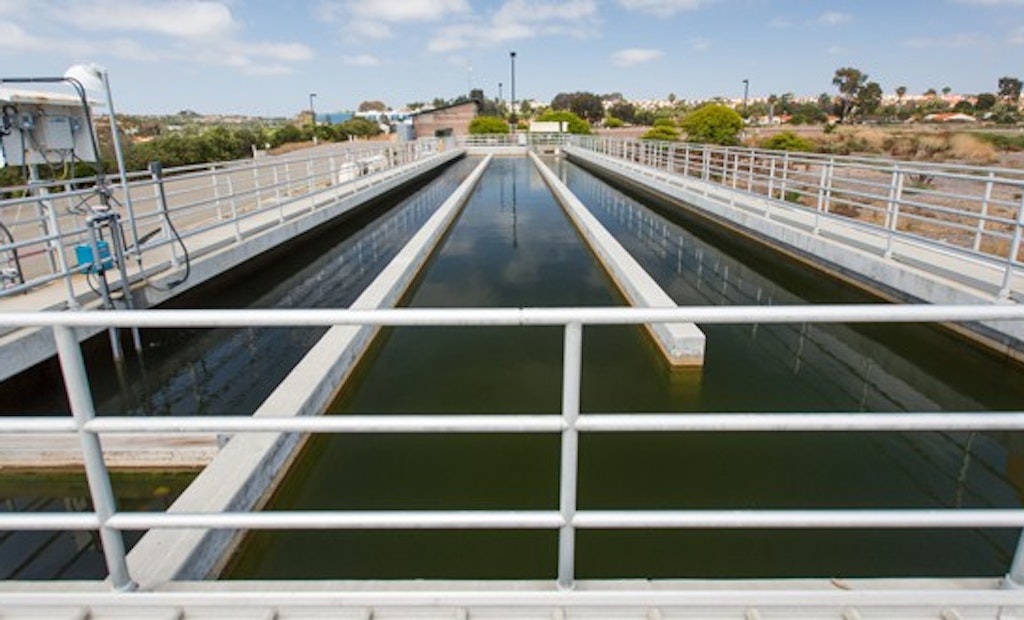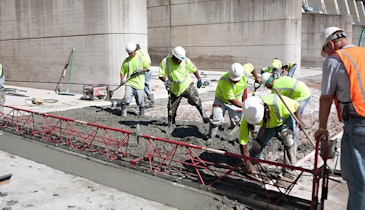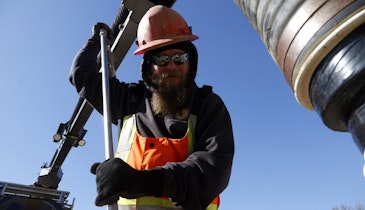Interested in Infrastructure?
Get Infrastructure articles, news and videos right in your inbox! Sign up now.
Infrastructure + Get AlertsThe U.S. Environmental Protection Agency’s Regional Administrator Jared Blumenfeld announced more than $182 million in funding to California for investment in statewide improvements in drinking water and wastewater infrastructure and the reduction of water pollution.
Blumenfeld was joined by City of Carlsbad Mayor Matt Hall for the announcement at an event highlighting $37 million in funding that is being used to expand the Carlsbad Water Recycling Facility and nearly double its capacity to generate water for non-potable uses.
The City of Carlsbad is using about $30 million through a 1 percent interest State Revolving Fund loan and an additional $7 million in other funding to expand its current water recycling facility capacity from 4,100 acre-feet per year to 7,235 acre-feet per year. The project will construct 18 miles of pipe as well as a new storage tank, and install 156 new recycled water meters. Once completed, Carlsbad will recycle and use all of its wastewater during summer months, meeting nearly 33 percent of its water district’s annual water needs.
“This substantial investment at the federal level helps communities like Carlsbad provide sustainable sources of water in the face of California’s historic drought,” says Blumenfeld. “The EPA is committed to protecting the state’s water resources so critical to our environment, public health and economy.”
The $182 million in additional funding will be used across California for water-quality projects that will reduce water pollution, improve municipal drinking water and wastewater infrastructure, make projects more sustainable by increasing water and energy efficiency, and provide technical assistance to communities. California’s Clean Water State Revolving Fund provides financing in the form of low-interest loans for municipal wastewater treatment projects, while the state’s Drinking Water State Revolving Fund provides financial assistance for drinking water infrastructure improvements.
Since the inception of California’s clean water and drinking water revolving funds programs in 1988 and 1996, respectively, the EPA has awarded more than $4.6 billion in federal funding. The agency estimates $271 billion is needed to address the nation’s aging and failing wastewater infrastructure, of which $26 billion is needed in California.
California anticipates allocating a portion of this year’s funds for San Francisco’s planned Lake Merced Green Infrastructure Project. The project will install stormwater management improvements, such as bioretention planters and linear vegetation strips adjacent to the curb, in a dense residential setting within a disadvantaged area of the city. Another anticipated project will enable the City of Davis to change the source of its drinking water from groundwater to the Sacramento River by connecting to a new regional water treatment facility. This will reduce the amount of selenium in the drinking water and help Davis satisfy its wastewater discharge permit.
Recently funded projects include the City of San Diego Metro Biosolids Center, which made upgrades to its facility. The facility converts solids from area wastewater treatment facilities to high-quality biosolids that are used to promote growth of agricultural crops, fertilize gardens and parks, and as landfill cover. The facility also uses cogeneration capabilities to convert methane gas from solid waste to energy that powers the largest wastewater facilities.






